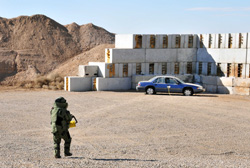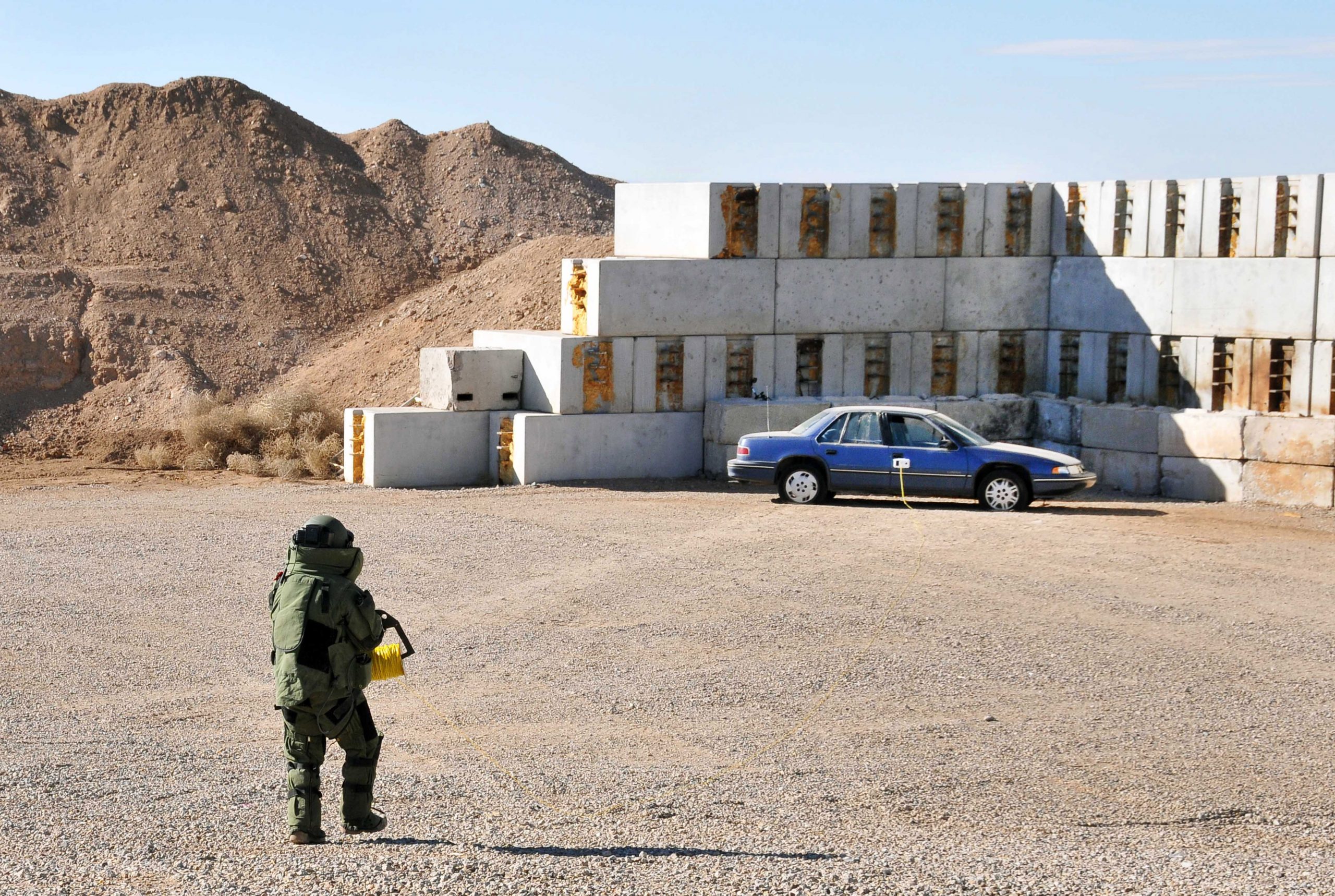ALBUQUERQUE, N.M. — A water blade that is disabling improvised explosive devices (IEDs) in Afghanistan, software that detects water contamination or evidence of terrorists poisoning municipal water systems and a program that provides free technical assistance to New Mexico’s small businesses all have earned national awards for Sandia National Laboratories.
Sandia will receive three 2011 Federal Laboratory Consortium (FLC) awards at a ceremony in May at FLC’s national meeting in Nashville, Tenn. The annual awards go to federal laboratories that transfer valuable technologies to those who need them.
“Sandia won awards for a partnership with a small business, for our work with a federal agency and for collaborating with another federal laboratory and the state of New Mexico. These awards show Sandia’s excellence in technology transfer plus the depth and breadth of our efforts,” said Jackie Kerby Moore, manager of Technology & Economic Development.
The three awards are for:
- Water-based explosives disruptor — The licensing of Sandia’s water-based explosives disruptor to TEAM Technologies Inc. won the FLC Award for Excellence in Technology Transfer. The patent-pending technology — TEAM licensed it as “Stingray” — was invented by Steve Todd and Juan Carlos Jakaboski, both Sandia employees, and Chance Hughs, a former Sandia employee. The water-filled device, which is capable of penetrating steel, is placed near a suspected bomb or package and shreds or punches a hole in it before it detonates. The device is small enough to be carried in a soldier’s backpack and rugged enough to be placed by a robot. The licensing agreement between Sandia and TEAM, which is located in the Sandia Science & Technology Park in Albuquerque, allows the small, minority-owned business to improve the device’s design and bring it to market. TEAM has produced 7,000 water disruptors, shipping nearly 5,000 to Afghanistan and 2,000 to U.S. government and law enforcement agencies.
- CANARY Event Detection Software — Sandia and the U.S. Environmental Protection Agency won the 2011 FLC Interagency Partnership Award for their collaboration to develop the CANARY Event Detection Software, which protects public drinking water systems by enhancing the detection of contaminants or a terrorist attack. Sandia researchers, led by Sean McKenna, worked with the EPA’s National Homeland Security Research Center on the project. Using a network of sensors located strategically throughout a water distribution system, the CANARY software continuously analyzes signals and sorts through the noise of changing environmental conditions to detect significant variations that indicate water quality degradation. CANARY enables utility administrators to quickly notify consumers of a threat or risk to public health and start remediation and recovery efforts. CANARY is available to drinking water utilities of all sizes worldwide. The open-source software enables a utility to customize it to meet its needs. CANARY has been installed at several water utilities across the United States, including Cincinnati and Philadelphia, as part of the EPA’s Water Security Initiative and has been running on the national drinking water system in Singapore since July 2009.
- The New Mexico Small Business Assistance Program (NMSBA), a public-private partnership between Sandia and Los Alamos national laboratories and the state of New Mexico, won the FLC’s State and Local Economic Development Award for bringing cutting-edge technical assistance to small businesses across New Mexico. Since it was created a decade ago, NMSBA has provided 1,736 small businesses with $25.1 million worth of research hours and materials. NMSBA has helped create and retain more than 1,500 jobs at an average salary of about $38,000, increase small companies’ revenues by $82 million and decrease their operating costs by $45 million. These companies, many of which are located in rural areas without easy access to the Labs’ expertise, have gone on to invest $19 million in other New Mexico goods and services.
The FLC is a nationwide network of federal laboratories that provides a forum to develop strategies and opportunities to link the laboratories’ missions and expertise with the marketplace. The FLC was organized in 1974 and formally chartered by the Federal Technology Transfer Act of 1986 to promote and strengthen technology transfer nationwide. More than 250 federal laboratories and centers and their parent departments and agencies are FLC members.

